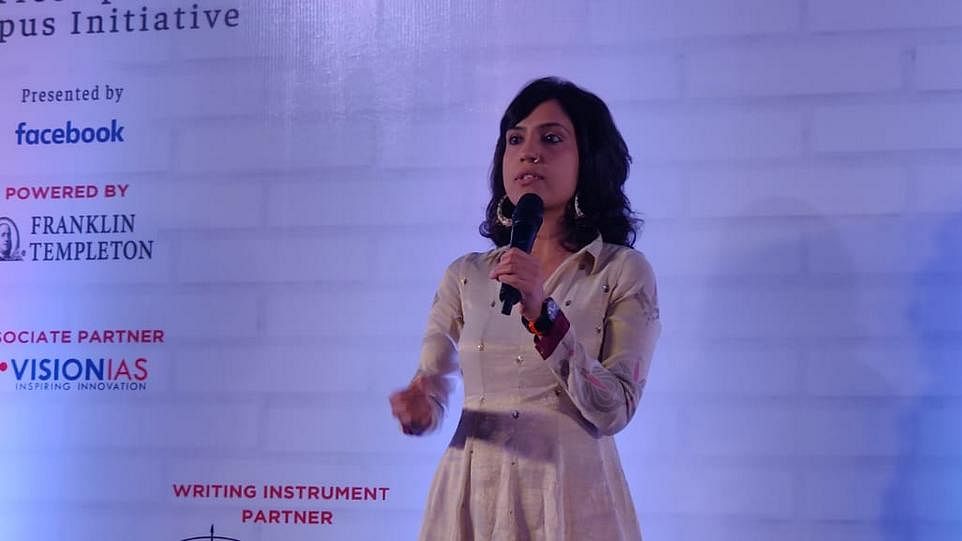Sonipat: Radio Mirchi’s Sayema Rahman, one of India’s most popular presenters, said she will continue to find ways of discussing political matters even though radio jockeys are often discouraged from talking about news on air.
“A lot of radio jockeys don’t get involved in discussing political matters, but we can’t stay away from being responsible citizens. I realised that my conscience is what makes me,” said Rahman at ThePrint’s Democracy Wall, a free speech initiative which was held at the Jindal Global University Monday.
“Either speak up and (perish), or say nothing and perish anyway. I choose the former,” the RJ added.
Rahman also said she would talk about religious divides by referring to stories of renowned Partition writer Saadat Hasan Manto or poems of Faiz Ahmed Faiz.
“I’ll use their words to say what I can’t on air. There are ways to go about it, but I can’t settle for being a silent spectator,” she said.
Also read: BJP’s habit of justifying policies with absurd logic has set a dangerous precedent
Radio taught me secularism
Rahman, however, said her relationship with her religion was a “deeply personal one that needn’t be exhibited to the world”, when asked if she was comfortable with being identified as a progressive Muslim woman.
“When I joined Radio Mirchi we were told our last name was ‘Mirchi’, and that’s when I imbibed the true meaning of secularism. My radio identity doesn’t have a religion attached. My Muslim identity is one I’m not willing to share, because it’s a very, very personal thing. Even my parents don’t know what my relationship with god is,” she said.
“On social media, I would rather my identity be Indian before anything else. The problem is that we’re trying to highlight what’s different about us all.”
She also pointed out how “hypocrisies” are often attached with labels. “If I sympathise with someone who seems to be a Muslim victim, I’m called an Islamist and a jihadist on social media, and if I sympathise with a victim who isn’t Muslim, I’m liberal and progressive.”
Radio will ‘never die’
Rahman was confident that radio as a medium would never lose relevance even if its reach has shrunk over the years.
“Radio is the first, biggest, and cheapest social medium,” she said, adding, “It creates a perfect world, because I don’t need to know a person’s name, what they look like, their caste or creed. You can influence people without knowing all that, and if you can connect with someone that way, you become their best friend.”
She, however, argued that the medium needed some reinvention.
Wrapping up the session, Rahman reiterated the importance of tolerance by singing a poem by Allama Iqbal titled ‘Lab Pe Aati Hai Dua’. She recalled how a headmaster in Pilibhit was suspended for asking his students to recite the Urdu poem.
“Prayers can’t be put into the categories of Hindu and Muslim — it would be the end of this country,” she said.
Also read: ‘Actor Tisca Chopra’s MeToo session truly resonated with me’
